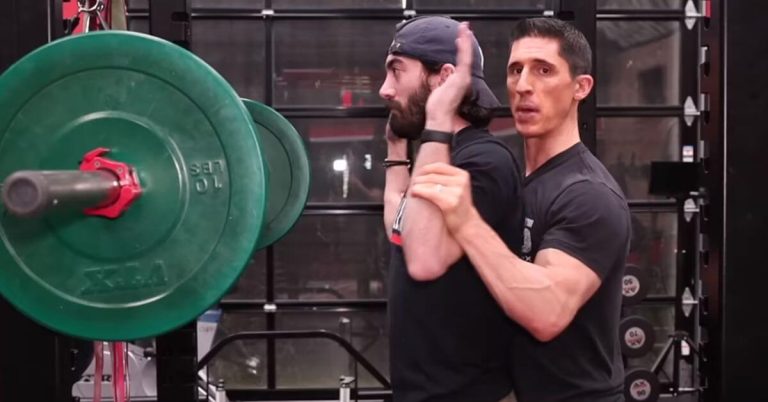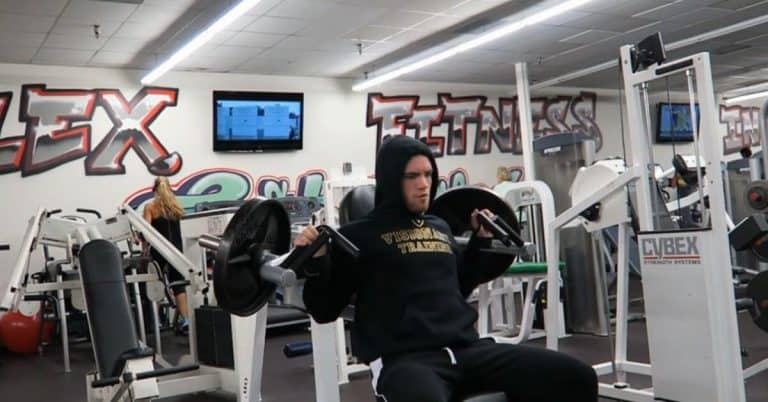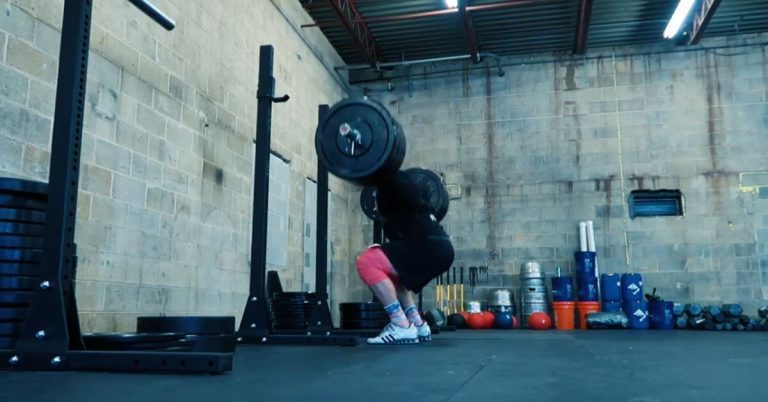Why Do I Look Fatter After Running: Uncovering the Surprising Truth
Last Updated on December 20, 2023 by Justin Harris
Why Do I Look Fatter After Running: Running can make you look fatter due to temporary water retention and increased blood flow. However, this is a temporary effect that can be attributed to a variety of factors.
When you first start running, your muscles undergo microscopic damage, resulting in inflammation and increased blood flow to the affected areas. This influx of blood can cause temporary swelling, making you appear larger or puffy. Additionally, running can cause water retention, as your body tries to regulate fluid balance and cool itself down through sweat.

Furthermore, the increased blood flow can lead to temporary weight gain as your body retains more water to support the healing and recovery process. It’s important to note that this initial appearance of looking fatter after running is not long-term and will subside as your body adjusts and adapts to the exercise routine. To accurately assess your progress, focus on long-term indicators of health and fitness, such as improvements in cardiovascular endurance, strength, and body composition.
Understanding The Science Behind It
Understanding the science behind why you may look fatter after running can provide insight into the factors at play. One possible explanation is fluid retention. During exercise, your body releases a hormone called antidiuretic hormone (ADH), which can result in water retention and bloating. It is important to stay hydrated during activities to prevent excessive fluid retention.
Read Also: Why Do Weights Feel Heavier Some Days: The Science Behind It
Another factor is muscle inflammation and swelling. When you run, your muscles undergo microtrauma, which causes inflammation and leads to temporary swelling. This can give the appearance of being larger or “fatter.” However, this is a normal response and should subside after a few hours or days.
Common Mistakes That Lead To A Bulkier Appearance
Many people wonder why they sometimes appear to look fatter after running, despite the fact that running is typically associated with weight loss. However, there are a few common mistakes that can lead to a bulkier appearance.
One common mistake is overeating after running. It can be tempting to indulge in high-calorie foods after a workout, especially if you feel like you’ve burned a lot of calories. However, consuming more calories than you’ve burned can lead to weight gain and a bigger waistline.
Read Also: If I Burn 1000 Calories a Day And Eat 1500
Another mistake is the lack of strength training. While running is a great cardiovascular exercise, it may not be enough to build lean muscle mass. Strength training exercises, such as weightlifting, can help tone and sculpt your body, giving you a more defined and less bulky appearance.
Read Also,
- Treadmill $200
- Best Elliptical Under 600
- Best Treadmills Under $300
- Best Treadmill Under 200
- Best Exercise Bikes Under 200
- Best Exercise Bike Under $300
- Best Spin Bike for Short Person
- Best Elliptical Machines Under 1000
- Best Sauna Suit to Lose Weight
- Best Compact Elliptical Under $500
- Best Home Rowing Machine Under 500
The Role Of Body Composition Changes
Many individuals may experience the sensation of looking fatter after running due to changes in their body composition. This can be attributed to the combined effects of building muscle and burning fat. During running, the body engages in high-intensity physical activity, causing the muscles to work harder and potentially grow in size.
Read Also: The Incredible Benefits of Stationary Bikes
The process of building muscle is often accompanied by an increase in lean body mass. Muscle tissue is more dense than fat tissue, which means that even if you are losing fat, you may be gaining weight in lean body mass. This increase in muscle mass can give the impression of appearing bulkier or heavier.
Furthermore, when you exercise, your body burns calories, including stored fat, by utilizing it as a source of energy. This fat-burning process can help improve your overall body composition over time. However, fat loss may not always occur uniformly throughout your body, which means that some areas may retain more fat than others, leading to the perception of looking fatter after running.
| Factors to Consider: | Effect on Body Composition: |
|---|---|
| Building Muscle | Increase in lean body mass |
| Burning Fat | Variable fat loss |
It is important to remember that fluctuations in perceived body size and appearance can occur for various reasons and may not always be an accurate reflection of your fitness progress. It is advisable to focus on overall health and well-being rather than solely relying on visual changes. Regular exercise, including running, combined with a balanced diet, will help improve your body composition in the long run.
Psychological Factors And Body Perception
In today’s society, body image is heavily influenced by psychological factors, which can cause individuals to perceive themselves as looking fatter after running. Distorted body image plays a significant role in this phenomenon. Many people develop an inaccurate perception of their own bodies, often perceiving themselves as larger or less fit than they actually are. This can lead to feelings of dissatisfaction and frustration, especially when individuals engage in physical activities like running.
The media and society also play a crucial role in shaping body perception. The constant exposure to unrealistic and idealized body types in the media can create a distorted perception of what is considered “normal” or “healthy” for our bodies. Additionally, society often places great emphasis on appearance and thinness, leading individuals to internalize these societal standards and judge themselves harshly if they do not meet them.
It is essential to acknowledge that body perception is subjective and can vary from person to person. Challenging negative body image and working towards self-acceptance can help individuals appreciate the benefits of running without becoming overly fixated on perceived flaws.
Strategies To Achieve A Leaner Look While Running
One of the reasons why you might feel or look fatter after running is because of water retention. Running causes the muscles to retain water, which can make you look bloated or puffy. However, this is a temporary condition that will resolve itself with time.
To achieve a leaner look while running, it is important to focus on balanced nutrition and hydration. Ensure that you are consuming enough water to stay hydrated and eating a balanced diet that includes protein, healthy fats, and carbohydrates to fuel your runs and support muscle recovery. Incorporating strength training exercises into your running routine can also help promote a leaner appearance.
Strength training helps to build muscle, which in turn boosts your metabolism and increases calorie burn even at rest. Additionally, focusing on overall fitness rather than just appearance can help you feel more confident and satisfied with your running journey. Engage in activities that you enjoy and that challenge your body in different ways, such as yoga or HIIT workouts. Remember, the most important thing is to listen to your body and give it the care and nourishment it needs to thrive.
Conclusion
After carefully analyzing the factors contributing to feeling fatter after running, it is clear that our body’s response to exercise can be complex. Fluid retention, increased muscle mass, and changes in body composition can all play a role in this phenomenon.
However, it’s essential to focus on overall health and well-being rather than fixating on temporary changes in appearance. Remember, consistency, patience, and a balanced approach to exercise and nutrition are key to achieving long-term fitness goals.






